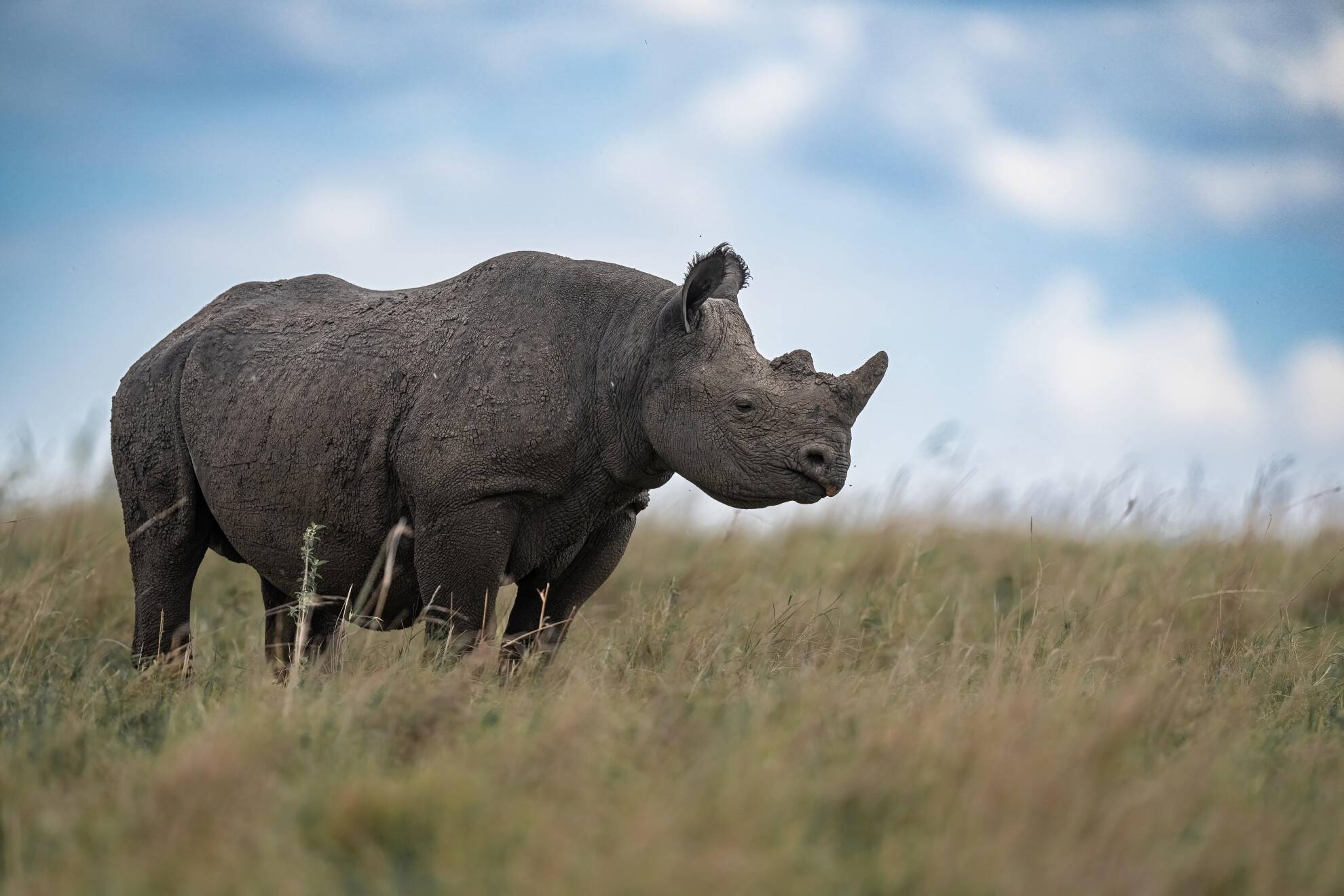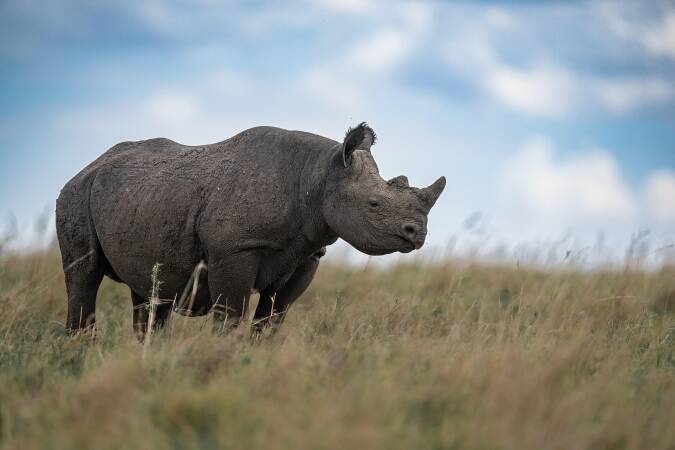

When one considers dangerous game hunting in Africa, there are not many animals more intimidating than the rhinoceros. As a member of Africa’s Big 5 and Dangerous 7, they are a force to be reckoned with and, if the budget allows a great trophy to target on an African hunt.
There are five species of rhinos, including two African rhinos and three Asian rhino species. African rhino species include the black rhino (Diceros bicornis) and the white rhino (Ceratotherium simum). Contrary to popular belief, both the black and white rhinos are gray.
The black rhino has four subspecies:
Preferring habitats including savannas, thickets, and open plains, the black rhino is an incredible sight to behold in the wild. Unfortunately, due to illegal poaching and hunting of this tough member of the Big 5, it is now critically endangered.
The black rhino is a herbivore that forages for its food. Also known as the hook-lipped rhino, the black rhino feasts on twigs, leaves, succulents, herbs, and branches, grasping them with its pointed upper lip. These massive creatures are water-dependent and need to drink every 2-3 days.
The only two destinations worldwide where rhino hunting is legally offered, are South Africa and Namibia. CITES permits are required for these strictly controlled dangerous game hunting adventures. Rhino hunts are not cheap and only a few permits are issued annually. Some outfitters, in addition to traditional hunts, also offer a green-dart or vita-dart hunt. This is a more cost-effective hunt but does come with the same adrenaline-filled walk-and-stalk hunting method. The difference is that after this hunt, the rhino walks away, with an added vitamin to boost him on his way!
Name:
Diceros bicornis
Male Weight:
1760-3080 pounds
Male Shoulder Height:
55-70 inches
Range:
Mainly found in South Africa, Kenya, Namibia and Zimbabwe
Mating Period:
Year-round
Life span:
30-50 years
The black rhino is highly attuned to its surroundings, with a keen sense of smell and a robust, muscular frame that aids in navigating dense vegetation
Female black rhinos are smaller than their male counterparts, with the males standing 55-71 inches at the shoulder. The rhino has a tough, gray hide, that protects them from sharp vegetation as they browse and forage. It has a pointed upper lip which it uses to grasp leaves, twigs, and branches as it eats. The black rhino has two horns on its nose, the front one being longer and reaching up to 22 inches, while the rear horn is shorter. These horns are made of keratin and aid the rhino in digging for food, aiding in defense against attackers as well as establishing dominance within the herd. Rhinos are renowned for their exceptional sense of smell, good hearing, and poor eyesight. Their ears have a wide range of movement, allowing them to detect sounds in the area, while their sense of smell allows them to easily gauge when a predator is close by.
Hunting a rhino in Africa is the stuff that hunting adventures are made of and is on top of many hunters’ wish lists! Rhinos are usually hunted through the traditional walk-and-stalk method.
The challenge of rhino hunting is firstly to approach it, as it has very good hearing and sense of smell. Secondly, it has a very thick skin to penetrate. For many hunters, simply being on a dangerous game hunting safari targeting this spectacular mammal is sufficient. To have the opportunity to test your hunting prowess against that of one of the Big 5: priceless!
As with all the big five dangerous game hunting, the minimum legal requirement for rhino hunting in Africa is a .375 caliber shooting a 300-grain bullet. Another consideration is a well-placed bullet from a 416 Rigby, 500 Jeffery, 458 WM, or Lott which will all ensure proper penetration of its incredibly tough hide. Some hunters may prefer double rifles such as the 470NE, 500NE, and higher, especially in close quarters on this dangerous game hunting safari.
Search from our range of Hunts across various popular destinations in Africa.
Find A Hunt